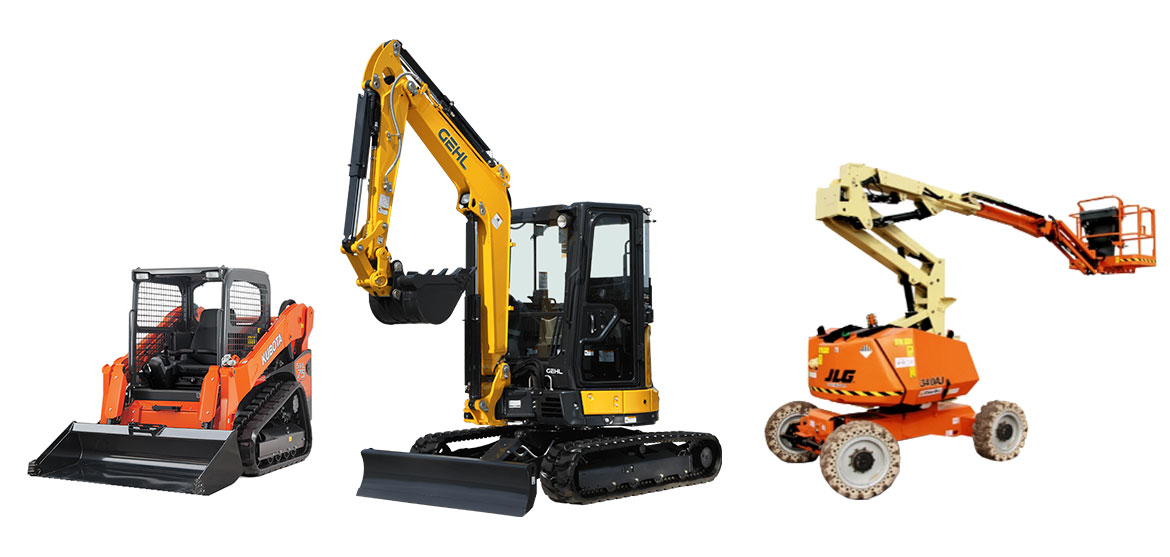Equipment Rental Company: Your Source for All Sorts Of Equipment
Equipment Rental Company: Your Source for All Sorts Of Equipment
Blog Article
Maximize Your Budget Plan by Understanding the Expenses Related To Building And Construction Equipment Leasings
Comprehending the full scope of costs associated with building and construction equipment leasings is essential for optimizing your spending plan. What methods can be employed to successfully handle these prices and ensure an extra effective rental experience?
Review of Rental Costs
When considering building and construction tools services, recognizing the connected prices is critical for effective budgeting and project preparation. Rental costs can differ dramatically based on a number of factors, consisting of devices kind, period of rental, and location. The preliminary rental fee often mirrors the equipment's market need and its connected operational abilities, influencing the total cost.
In addition to the base rental rate, ancillary expenses might occur, such as transportation costs, gas surcharges, and maintenance costs. It is important to account for these additional expenditures to accurately examine the total expense of renting devices. Additionally, the rental period can influence pricing; longer rentals may get approved for affordable rates, while temporary rentals might sustain greater daily costs.

Breakdown of Rental Prices
An extensive understanding of rental rates is important for contractors and job supervisors aiming to maximize their spending plans. Rental rates for construction tools commonly contain a number of components, consisting of base prices, time-based fees, and use charges.
Base prices are the core fees connected with the leasing of the devices, commonly determined by the type and size of the machinery. These prices can differ substantially, influenced by aspects such as equipment demand, accessibility, and local market fads. Time-based fees, which may be daily, weekly, or monthly, offer to suit different job timelines and rental periods.
Furthermore, rental rates may consist of usage fees, which are appropriate when devices is used past a defined threshold, making certain that the rental firm can account for wear and tear. Seasonal need changes can likewise impact rental rates, with peak building and construction seasons usually commanding higher costs.
Moreover, recognizing the rental firm's policies regarding upkeep and insurance coverage can provide further insight into the overall price framework. By analyzing these elements, service providers can make enlightened choices, guaranteeing the selection of rental tools straightens with both job needs and budget plan constraints.
Additional Fees to Think About
Recognizing the intricacies of added costs is important for specialists to manage their general rental expenditures efficiently. Past the typical rental rates, various extra costs can significantly impact the overall cost of devices service. These charges usually consist of delivery and pickup fees, which can vary based upon distance and logistics entailed in moving the tools to and Click Here from the task site.
Additionally, some rental firms may impose gas surcharges if the devices is returned with much less gas than when rented out. It is also crucial to be conscious of prospective cleansing fees, specifically for customized devices that requires comprehensive upkeep after use.

Completely examining the rental arrangement and clarifying these added fees in advance can aid service providers prevent unforeseen costs and ensure that spending plans remain undamaged throughout the job lifecycle.
Upkeep and Fixing Costs
Routine repair and maintenance expenses are frequently overlooked elements that can substantially influence the total cost of construction devices leasings. When leasing devices, it is essential to think about not only the rental fees but likewise the possible expenses related to maintaining the machinery in optimal operating problem.
Lots of rental companies include basic upkeep as component of the rental agreement; however, much more substantial fixings or unexpected failures can cause extra expenditures. It's necessary to review the rental agreement very carefully to recognize what maintenance solutions are covered and what responsibilities drop on the occupant.
Additionally, devices that is not well-maintained can result in ineffectiveness on the job website, possibly causing delays and boosting job costs. To minimize these risks, it is suggested to carry out normal inspections and maintain open interaction with the rental provider relating to any kind of concerns that develop throughout usage.
Insurance Policy and Liability Expenses
Insurance policy and liability expenses are crucial parts that can significantly affect the total cost of building devices rentals (forklift rental). These prices guarantee that both the rental business and the customer are protected from this website possible financial losses developing from mishaps, damage, or theft during the rental duration

Furthermore, clients ought to know any type of deductibles or exemptions in the insurance plan, as these can influence possible out-of-pocket expenses. Understanding the conditions of any type of insurance policy coverage is important to avoid unforeseen costs. Eventually, budgeting for insurance and obligation costs can help guarantee a smoother rental experience and secure against monetary dangers associated with building and construction projects.
Verdict
In final thought, a thorough understanding of the prices linked with building and construction equipment rentals is vital for efficient spending plan administration. Inevitably, notified decision-making concerning equipment services adds to the general success of building and construction ventures.
Rental costs can differ substantially based on a number of factors, consisting of devices type, period of leasing, and area (dozer rental). The rental duration can influence pricing; longer rentals might qualify for discounted rates, while short-term leasings might incur greater day-to-day costs
By performing extensive research and engaging with reputable rental business, service providers can properly navigate the complexities of rental prices, ultimately optimizing their monetary resources.
Past the conventional rental rates, numerous supplementary costs can substantially impact the complete price of equipment leasing. Rental firms usually supply liability insurance coverage that covers injuries to third parties or damage to home, while devices damages insurance coverage can cover the expense of repair services or replacement if the rented tools is harmed.
Report this page